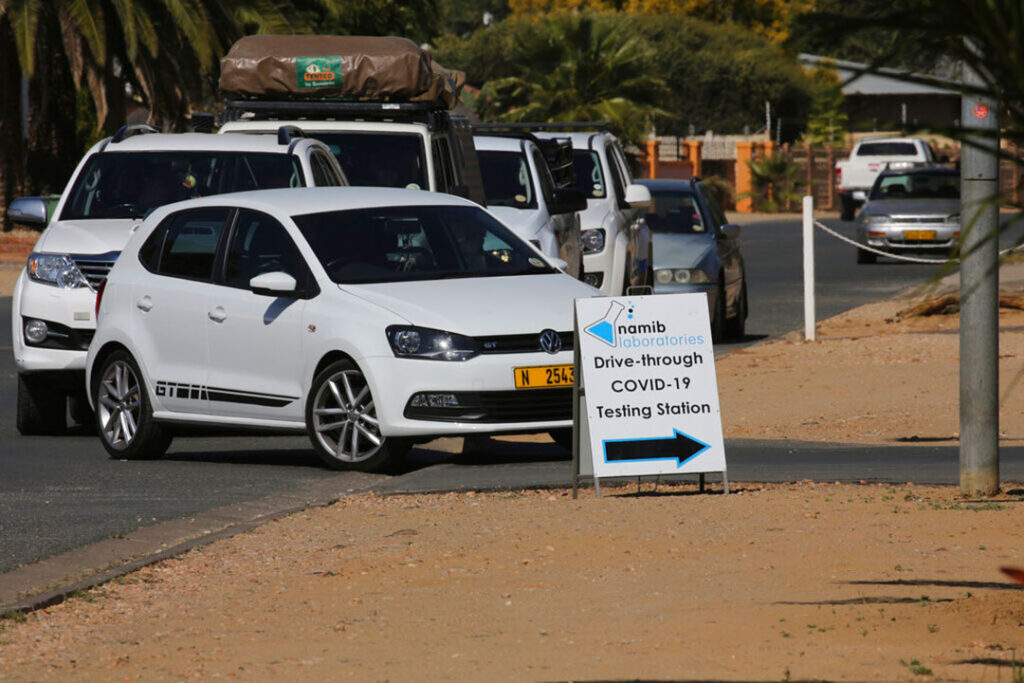ADF STAFF
The COVID-19 pandemic is battering Namibia, which in recent weeks ran out of oxygen and vaccines while hospitals and mortuaries reached capacity.
On July 5, Namibia got more bad news when it confirmed the presence of the Delta variant. The highly infectious strain was found in 17 of 18 samples taken from positive COVID-19 cases from the central Khomas region, Namibian Ministry of Health Executive Director Ben Nangombe said in a statement.
“This is the first report on the detection of the Delta variant in Namibia,” he said. “More genomic sequencing activities will be carried out in the coming weeks to determine the extent to which the variant may be present in the rest of the country.”
Namibia has had 95,703 confirmed cases of COVID-19 and 1,649 deaths, according to Africa Centres for Disease Control and Prevention statistics through July 5.
But a staggering 34,285 infections and 726 deaths were recorded in June, according to Nangombe. Namibia now has one of the high infection rates in the world.
“We cannot tell at the moment whether we have reached the peak of the third wave or are still climbing,” he told reporters on June 30, when Namibia set a single-day record with 3,268 new cases.
That same day, President Hage Geingob announced new lockdown measures that include a nightly curfew, a ban on travel between regions and restrictions of alcohol sales.
“Having recovered from COVID-19 myself, I have seen the need to take the difficult decision to protect ourselves,” he said. “I also urge all Namibians to get vaccinated.”
Several districts, however, have run out of vaccines. Overall, the country has stopped administering second doses and expects a six-week wait before resuming.
Namibia has fully inoculated just more than 26,000 people out of its 2.5 million population. The country has administered more than 124,000 vaccine doses, the Ministry of Health reported on July 4.
Despite paying to participate in COVAX, the global vaccine distribution initiative, Namibia has received just 67,200 of the 108,000 doses it was allocated. The rest are expected later in July and August.
“The majority of these doses have been used up, and only a limited stock remains,” Health Minister Kalumbi Shangula told reporters on June 30. “We will continue to vaccinate at sites where vaccine stocks are still available.
“The fact of the matter is that some protection is better than none.”

